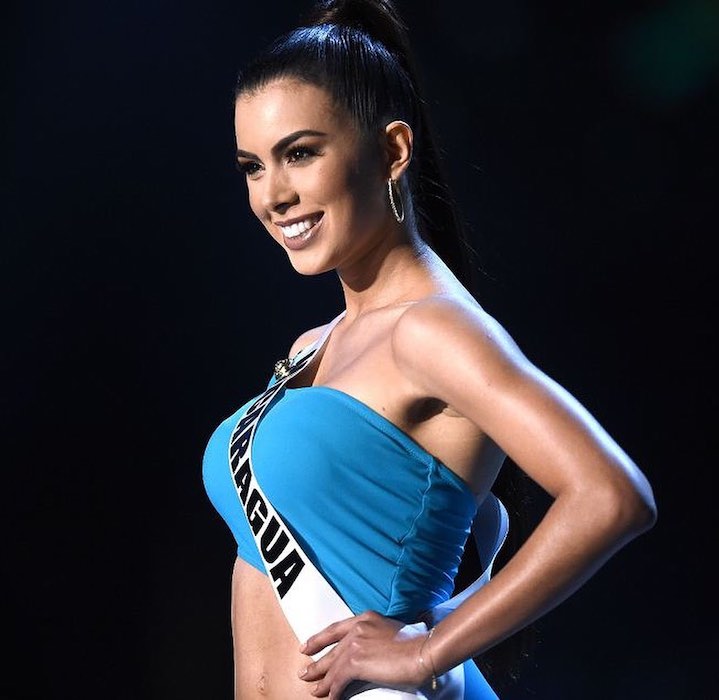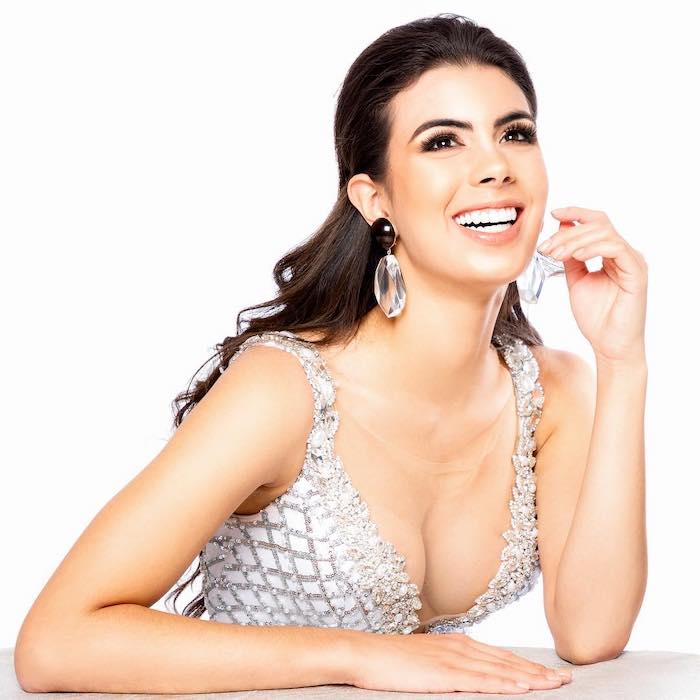
Adriana Paniagua on Modeling, Body Image and Self-love
March 11, 2020
Mimi is a proud Latina writer and beauty junkie, always looking for her next female empowerment story to tell. Her work has been published in Thought Catalog, Your Tango, Rawly Bold, Guddi and Read Unwritten. She also has a beauty and lifestyle blog called Life With Mims and has collaborated in projects with NYX Cosmetics, OPI and Pandora.
By Mimi Alas
The fashion and beauty pageant industries are famous for their near-unattainable standards when it comes to women’s bodies. For years, they’ve depicted an “ideal body” that, even though it has slightly changed over the years, has created unrealistic expectations for women.
We interviewed fashion model and former Miss Nicaragua Adriana Paniagua, who’s been in the business since she was 14 years old, about the pressures models experience in order to achieve the perfect image.

How did you become a model?
Adriana Paniagua: I participated in a magazine cover contest when I was 14 years old. I didn’t realize this was going to be the start of my modeling career. My family motivated and supported me and I was very surprised when I won the contest. I appeared on the cover and began modeling in advertising campaigns and working with different brands after.
What were some of the positive and negative experiences you made at a young age regarding body image?
The best experience was doing something I enjoyed. It’s really satisfying working in an industry that you truly love, and not a lot of people have that luck. On the other hand, it was very difficult to accept two things; one, taking in so much criticism at such a young age whether it’s positive or negative, and two, accepting that my personal life was no longer private but public.
What were some of your accomplishments in modeling and pageants?
I had eight magazine covers and commercials with international brands and companies. I also walked Miami Fashion Week and Mercedes Benz Fashion Week Nicaragua, and participated in the Latin Grammys in 2018 and 2019. I participated in four pageants and was crowned the first Miss Teen Nicaragua 2011 in my country, Miss Teen International 2011, Miss Nicaragua 2018 and Miss Universe 2018 delegate.
What are some moments in your career that were challenging body image-wise and how did you handle them?
I started modeling when I was 14, so my body changed a lot during that time. I had stretch marks which is normal at that age since your body changes. As my body was changing there were a few times designers dropped me from their shows because I wasn’t the body type they were expecting for their clothes. Also, there was always the pressure in beauty pageants of being 90-60-90, and I wasn’t like that.
How did modeling at a young age affect the way you perceive your body?
My body went through a lot of changes, hormonal and physical. I started getting pimples, stretch marks, my metabolism changed, and all of those changes made me feel very insecure about myself which affected my self-esteem. However, as you grow older you learn it’s important to love yourself and play the cards you’re dealt with.
Did being exposed to criticism at such a young age affect your personal relationships?
No, it didn’t affect anything. I grew up surrounded by women (my mom and my sisters) and their support is what made me strong. If you don’t have that support, you can’t be confident. When it comes to dating, I think it’s very important to accept who you are and respect yourself. To me, when a guy respects you, treats you well and makes you feel good that’s what really matters.
When it comes to body image and the pressure to achieve the “perfect body” is it different for beauty pageants than for models?
Yes, it’s different. For beauty pageants, there’s this standard of the perfect woman with 60-90-60 centimeter measurements. Traditionally that’s been considered the ideal. Fortunately, pageants have been facing criticism and they’re now fighting these outdated standards. There’s more to a person’s talent than just measurements. In the modeling industry, standards are changing faster. The ideal model used to be very skinny, but now we’re seeing more normal and healthier bodies.

Have you experienced any way of rejection while modeling as a Latina?
There’s always rejection, whether you’re Latina, European, American, African-American, etc. Sometimes, it has worked in my favor and other times, it hasn’t. In this industry, you’re in the public eye and you have to have thick skin, and not dwell on every criticism. In Miami, some people believe Latinas are trashy, messy and loud. In Miami, there’s a lot of competition and sometimes people don’t want to hire Latinas anymore. People in the industry feel like Latinas are too expensive and because there are so many of us here, it’s not worth the price, they say.
What role does social media play in body image?
It can be positive or negative. People feel like everything should be perfect because subconsciously social media creates a fake illusion of how things should be or how they should look. However, there’s a positive side too because now social media is all about empowerment, not having the perfect body and being real. Brands aren’t looking for the perfect body anymore.
Has the fact that brands are looking for “real bodies” improved your career?
Yes! Brands now are looking for real people, they want everything to be real and it’s something that had given me the confidence I needed. It’s really competitive though because it makes you work harder. Now you have to be more creative. You have to work more on your image, your branding and work hard to get what you want to get.
Do you think the fashion industry has to make changes when it comes to the way women are represented?
Like any other industry, I believe this is a merit-based industry… not everyone can be a model. It requires hard work, discipline, and a lot of self-care, however, I think brands should change the way women are perceived. I wish brands didn’t create or standardize the perfect body.
What is your body image like today?
I’ve learned that my body isn’t about measurements as much as it about confidence, so I always try to keep a positive attitude and project confidence.
What do you do to feel your best?
I exercise, eat well, understand that there’s no such as the perfect body, feel comfortable with what I have, and do things I like, such as kickboxing. But most importantly accept what I am and love me as I am. And when it comes to feeling my best, I do it by keeping busy and ultimately being comfortable in my own skin. Again, confidence is the key to feeling satisfied with your work.
What would you say to women who have self-confidence issues?
I would tell them to do what’s best for them. There’s no perfect body and if you love yourself, everybody will love you for who you really are. You have to embrace yourself.